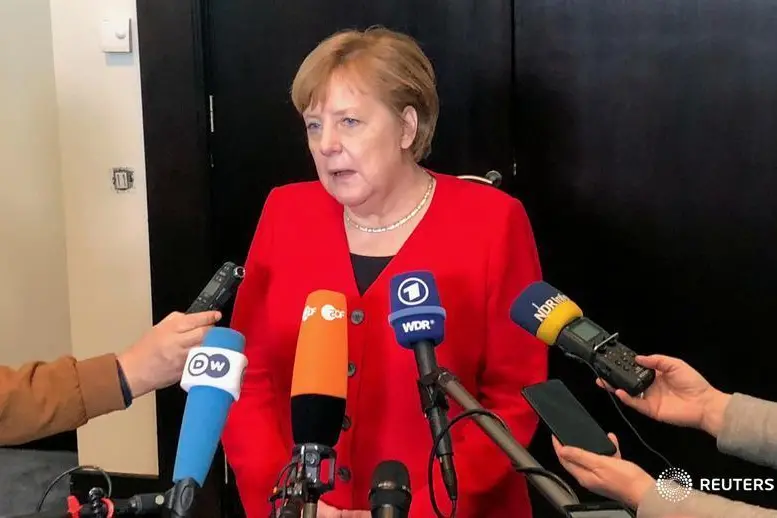PHOTO
BERLIN- Germany's Angela Merkel reaffirmed on Thursday that she would leave politics after serving out her fourth term as chancellor, dismissing speculation that she could take a big European Union job in Brussels.
"I am not available for any further political office, regardless of where it is - including in Europe," the 64-year-old Merkel told a joint news conference with visiting Dutch Prime Minister Mark Rutte.
Speculation about Merkel's future swirled in Berlin after she told Thursday's edition of the Sueddeutsche newspaper: "Many people are concerned about Europe – including myself. This means I feel even more duty-bound to join others in making sure that Europe has a future."
She made clear at the news conference that she saw it as her responsibility in her role as chancellor to promote a "good, functional Europe given the situation we have and the polarisation".
Anti-establishment, eurosceptic parties around the bloc see the May 23-26 European Parliament elections as a potentially defining moment and hope that a strong showing will bolster their efforts to slow European integration and return more power to national capitals.
Merkel has loomed large on the European stage since 2005, helping guide the EU through the euro zone crisis and opening Germany's doors to migrants fleeing war in the Middle East in 2015, a move that still divides the bloc and Germany.
Europe's longest-serving leader, Merkel announced last October that her fourth term as chancellor would be her last and that she would not seek any political post after her term ends, beginning a stage-managed gradual exit from politics.
In December, she then handed over the leadership of her Christian Democratic Union (CDU) to heir apparent Annegret Kramp-Karrenbauer.
Earlier this week, Merkel said politicians should not hang on in office "until nobody wants to see you anymore".
Kramp-Karrenbauer, sometimes dubbed "mini-Merkel", said in comments published earlier this week that she had no ambition to succeed Merkel as chancellor until 2021, which is when the current German legislative term is due to expire.
"The chancellor and the government are elected for a full term and citizens are right to expect that they take this mandate seriously," Kramp-Karrenbauer told the Welt am Sonntag newspaper in an interview.
"Speaking for myself, I can rule out that I am working in my own interest for a change."
When Merkel came into office in 2005, George W. Bush was U.S. president, Jacques Chirac was in the Elysee Palace in Paris and Tony Blair was British prime minister.
(Writing by Paul Carrel Editing by Michelle Martin and Mark Heinrich) ((paul.carrel@thomsonreuters.com;; +49 30 2888 5216; Reuters Messaging: Reuters Messaging: paul.carrel.thomsonreuters.com@reuters.net))





















